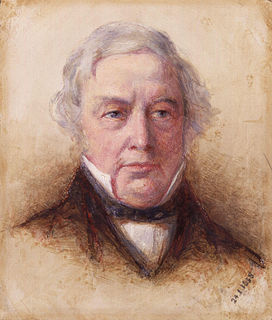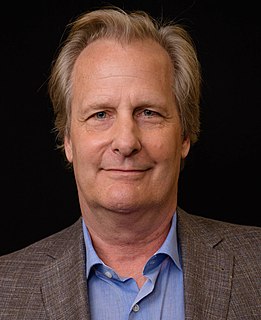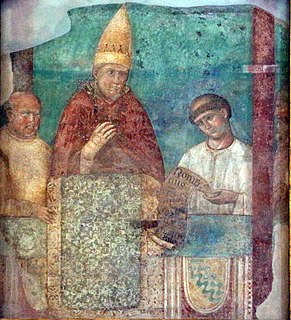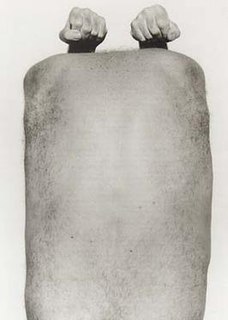Top 439 Greeks Quotes & Sayings - Page 6
Explore popular Greeks quotes.
Last updated on November 19, 2024.
Under the dominion of an idea, which possesses the minds of multitudes, as civil freedom, or the religious sentiment, the power ofpersons are no longer subjects of calculation. A nation of men unanimously bent on freedom, or conquest, can easily confound the arithmetic of statists, and achieve extravagant actions, out of all proportion to their means; as, the Greeks, the Saracens, the Swiss, the Americans, and the French have done.
While Leonidas was preparing to make his stand, a Persian envoy arrived. The envoy explained to Leonidas the futility of trying to resist the advance of the Great King's army and demanded that the Greeks lay down their arms and submit to the might of Persia. Leonidas laconically told Xerxes, "Come and get them.
The Greeks by their laws, and the Romans by the spirit of their people, took care to put into the hands of their rulers no such engine of oppression as a standing army. Their system was to make every man a soldier, and oblige him to repair to the standard of his country whenever that was reared. This made them invincible; and the same remedy will make us so.
We know their names: Hippolyta, Antiope, Thessalia. But they were long thought to be just travelers' tales or products of the Greek storytelling imagination. A lot of scholars still argue that. But archaeology has now proven without a doubt that there really were women fitting the description that the Greeks gave us of Amazons and warrior women.
My point is, as civilization is progressing, Mosaic law came down from the mountain, was handed to civilization, it emerged through the Greek civilization as the Greeks were developing their Age of Reason. And we're talking about the foundation of Western Civilization, and almost concurrently with that, Roman law was emerging as well.
There have been many definitions of hell, but for the English the best definition is that it is the place where the Germans are the police, the Swedish are the comedians, the Italians are the defense force, Frenchmen dig the roads, the Belgians are the pop singers, the Spanish run the railways, the Turks cook the food, the Irish are the waiters, the Greeks run the government, and the common language is Dutch.
I suppose I walk that line between comedy and cruelty because I think one illuminates the other. We're all cruel, aren't we? We are all extreme in one way or another at times and that's what drama, since the Greeks, has dealt with. I hope the overall view isn't just that though, or I've failed in my writing. There have to be moments when you glimpse something decent, something life-affirming even in the most twisted character. That's where the real art lies.
The monarchy of the Greeks for want of an heir was broken into several kingdoms; four of which, seated to the four winds of heaven, were very eminent. For Ptolemy reigned over Egypt, Lybia and Ethiopia ; Antigonus over Syria and the lesser Asia; Lysimachus over Thrace ; and Cassander over Macedon, Greece and Epirus .
It's always seemed to me that black people's grace has been with what they do with language. In Lorrain, Ohio, when I was a child, I went to school with and heard the stories of Mexicans, Italians, and Greeks, and I listened. I remember their language, and a lot of it is marvelous. But when I think of things my mother or father or aunts used to say, it seems the most absolutely striking thing in the world.
The oldest philosophy in the world is conservatism, and I go clear back to the first Greeks. ... When you say 'radical right' today, I think of these moneymaking ventures by fellows like Pat Robertson and others who are trying to take the Republican Party away from the Republican Party, and make a religious organization out of it. If that ever happens, kiss politics goodbye.
He (King Philip) wanted as many Greeks as possible to take part in the festivities in honour of the gods, and so planned brilliant musical contests and lavish banquets for his friends and guests. Out of all Greece he summoned his personal guest-friends and ordered the members of his court to bring along as many as they could of their acquaintances from abroad.
If Julian had flattered himself that his personal connexion with the capital of the East would be productive of mutual satisfaction to the prince and people, he made a very false estimate of his own character, and of the manners of Antioch. The warmth of the climate disposed the natives to the most intemperate enjoyment of tranquillity and opulence; and the lively licentiousness of the Greeks was blended with the hereditary softness of the Syrians.
I would describe that [friendship with Greek Prime Minister Alexis Tsipras] as a utilitarian friendship. At the time, his country was facing the prospect of leaving the euro zone and many Greeks felt abandoned by Europe. In such a situation, it seemed appropriate to me to present myself as a friend to Greece. It had to do with the country's dignity.
I have been photographing our toilet, that glossy enameled receptacle of extraordinary beauty. Here was every sensuous curve of the human figure divine but minus the imperfections. Never did the Greeks reach a more significant consummation to their culture, and it somehow reminded me, in the glory of its chaste convulsions and in its swelling, sweeping, forward movement of finely progressing contours, of the Victory of Samothrace.
Analysis of rebellion leads at least to the suspicion that, contrary to the postulates of contemporary thought, a human nature does exist, as the Greeks believed. Why rebel if there is nothing permanent in oneself worth preserving? ... Rebellion, though apparently negative, since it creates nothing, is profoundly positive in that it reveals the part of man which must always be defended.
The dancer's body is simply the luminous manifestation of the soul. The true dance is an expression of serenity; it is controlled by the profound rhythm of inner emotion. Emotion does not reach the moment of frenzy out of a spurt of action; it broods first, it sleeps like the life in the seed, and it unfolds with a gentle slowness. The Greeks understood the continuing beauty of a movement that mounted, that spread, that ended with a promise of rebirth.
In how few words, for instance, the Greeks would have told the story of Abelard and Heloise, making but a sentence of our classical dictionary.... We moderns, on the other hand, collect only the raw materials of biography and history, "memoirs to serve for a history," which is but materials to serve for a mythology.
The people and the cultures of what is known as Africa are older than the word 'Africa.' According to most records, old and new, Africans are the oldest people on the face of the earth. The people now called Africans not only influenced the Greeks and the Romans, they influenced the early world before there was a place called Europe.
And that's how we measure out our real respect for people—by the degree of feeling they can register, the voltage of life they can carry and tolerate—and enjoy. End of sermon. As Buddha says: live like a mighty river. And as the old Greeks said: live as though all your ancestors were living again through you.
The vision of the human being is confined today to the physical body. One regards this as a reality; one cannot raise oneself to what is spiritual. The souls who now look upon their own physical bodies with their eyes, and are unable to rise to what is spiritual, were incarnated among earlier peoples as Greeks, as Romans, and as ancient Egyptians.
We are used to discounting the river-gods and dryads of the Greeks as poetical fancies, and even the chief figures in the classical Pantheon-Venus, Minerva, Mars, and the rest-as allegories. But, forgetting that they once carried as much sanctity as our saints and divinities, we refrain from applying the same reasoning to our own objects of worship.
Aristotle's opinion... that comets were nothing else than sublunary vapors or airy meteors... prevailed so far amongst the Greeks, that this sublimest part of astronomy lay altogether neglected; since none could think it worthwhile to observe, and to give an account of the wandering and uncertain paths of vapours floating in the Ether.
In previous ages the word 'art' was used to cover all forms of human skill. The Greeks believed that these skills were given by the gods to man for the purpose of improving the condition of life. In a real sense, photography has fulfilled the Greek ideal of art; it should not only improve the photographer, but also improve the world.
The puzzle and conundrums of Emily Dickinson's poetry or The Cantos, by Ezra Pound, is infinitely pleasurable. Or Ronald Johnson's Ark. And the experience extends a whole lifetime. But the intensity of certain vocalized language affects our bodies in a particular way, and that further actualization propels me. The Greeks explored this; there were very particular meters used in making war, different ones for a love chant.
And regardless of the fact that in this country, certainly in the arts, we treat comedy as a second-class citizen, I've never thought of it that way. I've always thought it to be important. The last time I looked, the Greeks were holding up two masks. I've always thought of it not only as having equal value, but as the craft of it, being funny.
The Greeks understood perfectly that if there were divine beings they are capricious, unkind, malicious mostly, temperamental, envious and mostly deeply unpleasant because that you can say well yes, all right, if there is going to be god or gods then you have to admit that they're very at the very least capricious. They're certainly not consistent. They're certainly not all loving.
Such was the end of Philip (II, king of Macedonia) ...He had ruled 24 years. He is known to fame as one who with but the slenderest resources to support his claim to a throne won for himself the greatest empire among the Hellenes (Greeks), while the growth of his position was not due so much to his prowess in arms as to his adroitness and cordiality in diplomacy.
Regardless of the fact that in this country, certainly in the arts, we treat comedy as a second-class citizen, I've never thought of it that way. I've always thought it to be important. The last time I looked, the Greeks were holding up two masks. I've always thought of it not only as having equal value, but as the craft of it, being funny.
And if I were to ask myself from what literature we who have been nurtured almost exclusively on the thoughts of Greeks and Romans, and of the Semitic race, the Jewish, may draw the corrective which is most wanted in order to make our inner life more perfect, more comprehensive, more universal, in fact more truly human a life... again I should point to India.
It is remarkable that, notwithstanding the universal favor with which the New Testament is outwardly received, and even the bigotry with which it is defended, there is no hospitality shown to, there is no appreciation of, the order of truth with which it deals. I know of no book that has so few readers. There is none so truly strange, and heretical, and unpopular. To Christians, no less than Greeks and Jews, it is foolishness and a stumbling-block.
I don't mind the homosexuality. I understand it. Nevertheless, goddamn, I don't think you glorify it on public television, homosexuality, even more than you glorify whores. We all know we have weaknesses. But, goddammit, what do you think that does to kids? You know what happened to the Greeks! Homosexuality destroyed them. Sure, Aristotle was a homo. We all know that. So was Socrates.
I know of scarcely anything so apt to impress the imagination as the wonderful form of cosmic order expressed by the "Law of Frequency of Error." The law would have been personified by the Greeks and deified, if they had known of it. It reigns with serenity and in complete self-effacement, amidst the wildest confusion. The huger the mob, and the greater the apparent anarchy, the more perfect is its sway. It is the supreme law of Unreason.
Next, to make them expert in the usefullest points of grammar; and withal to season them and win them early to the love of virtue and true labour, ere any flattering seducement or vain principle seize them wandering, some easy and delightful book of education would be read to them; whereof the Greeks have store, as Cebes, Plutarch, and other Socratic discourses.
Greeks have to know that they are not alone ... Those who are fighting for the survivor of Greece inside the Euro area are deeply harmed by the impression floating around in the Greek public opinion that Greece is a victim. Greece is a member of the EU and the euro. I want Greece to be a constructive member of the Union because the EU is also benefiting from Greece.
If, therefore, the Greeks or others say that they are not committed to Peter and to his successors, they necessarily say that they are not of the sheep of Christ, since the Lord says that there is only one fold and one shepherd (Jn.10:16). Whoever, therefore, resists this authority, resists the command of God Himself.
I sometimes wonder if the hand is not more sensitive to the beauties of sculpture than the eye. I should think the wonderful rhythmical flow of lines and curves could be more subtly felt than seen. Be this as it may, I know that I can feel the heart-throbs of the ancient Greeks in their marble gods and goddesses.
But the tale or narrative set in the past may have its particular time-free value; and the candid reader will not misunderstand me, will not suppose that I intend any preposterous comparison, when I observe that Homer was farther removed in time from Troy than I am from the Napoleonic wars; yet he spoke to the Greeks for 2,000 years and more.
The Trojans lost the war because they fell for a really dumb trick. hey, there's a gigantic wooden horse outside and all the Greeks have left. Let's bring it inside! Not a formula for long-term survival. Now if they had formed a task force to study the Trojan Horse and report back to a committee, everyone wouldn't have been massacred.. Who says middle management is useless?
The principal thing is the question of how our culture views age: that old is ugly Just think of Rodin, how he dealt with people of all ages. I have the feeling that I'm alive, I have a body I can make it extremely interesting. That keeps me alive and vital. It's a kind of process of energizing myself by my belief that the classical tradition of art that we've inherited from the Greeks is a load of bullshit.
By giving material expression to force-forms in space, the Greeks gave divine spiritual beings the opportunity of using these material forms. It is no figure of speech but a fact when we say that gods came down at that time into the Greek temples in order to be among human beings on the physical plane.
We are neck and neck but there will be a very - it will be a very tough campaign in the last ten days. We must be very open and sincere with the Greek people. They should know what they could really expect. I think all of these old political logic is dead. We have to be honest, open and determined to get the Greeks out of this crisis.
We forget how the Greeks and Romans prevailed magnificently in a barbaric world and how that triumph ended-how a slackness and softness finally overcame them to their ruin. In the end, more than they wanted freedom, they wanted security and a comfortable life; and they lost all-comfort and security and freedom.
Indeed, Mr. Jefferson, what could be invented to debase the ancient Christianism, which Greeks, Romans, Hebrews and Christian factions, above all the Catholics, have not fraudulently imposed upon the public? Miracles after miracles have rolled down in torrents, wave succeeding wave in the Catholic church, from the Council of Nicea, and long before, to this day.
I see murky visions of other gods and rival magic." That REALLY didn't sound good. "What do you mean?" I asked. "what OTHER GODS?" "I don't know, Sadie. But Egypt has always faced challenges from outside –– magicians from elsewhere, even gods from elsewhere. Just be vigilant." ~Ruby & Sadie Kane about...? Possibly Greeks?
I pissed off Greeks, particularly in my family, for years to come, because I popularized the word "malaka," which hitherto had not been known outside of the community. It's basically "jack off," you know? Masturbator. So I remember my mother was not pleased at the time. She was, like, "Oh, John, couldn't you have used a better word?" There's no better word, Mom!
I believe in logic, the sequence of cause and effect, and in science its only begotten son our law, which was conceived by the ancient Greeks, thrived under Isaac Newton, suffered under Albert Einstein...
That fragment of a 'creed for materialism' which a friend in college had once shown him rose through Donald's confused mind.
There is one bit of advice given us by the ancient Greeks, and by the Jews in the Old Testament, and by the great Christian teachers of the Middle Ages, which the modern economic system has completely disobeyed. All these people told us not to lend money at interest; and lending money at interest - what we call investment - is the basis of our whole system.




















































